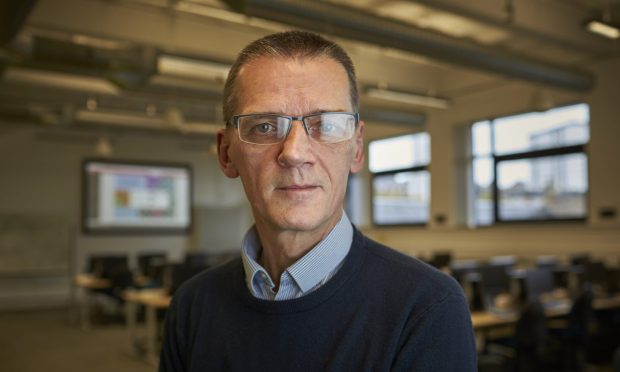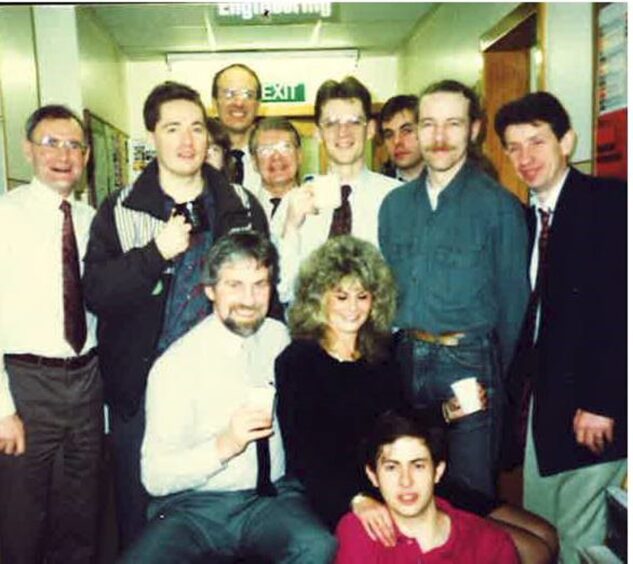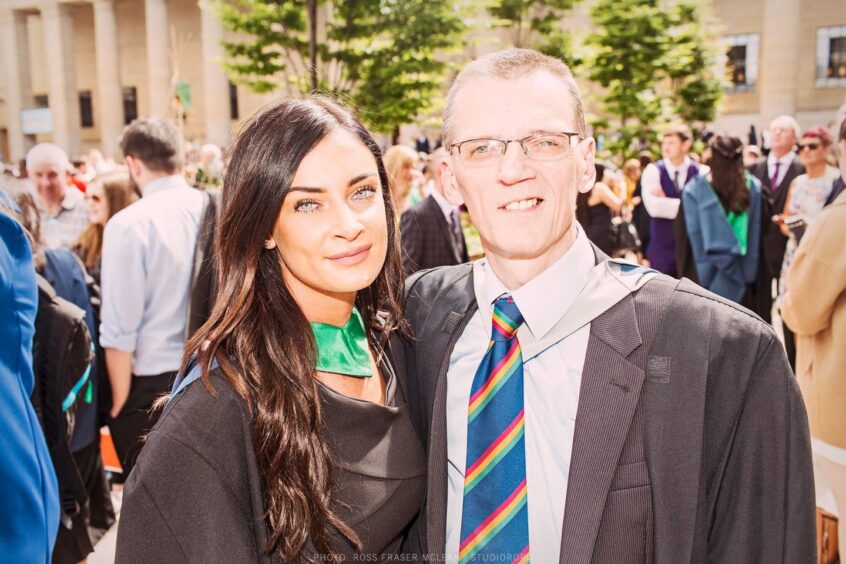The founder of the world’s first ethical hacking degree is retiring from Abertay University after more than 30 years.
Colin McLean was instrumental in setting up the first ever cyber-security course at the Dundee university in the mid-2000s.
The course has since attracted thousands of students from across the globe and recieved recognition from the National Cyber Security Centre.
Colin first came to Abertay, or the Dundee College of Technology as it was know then, as a mechanical engineering student in 1985.
After graduating, he spent three years working in robotics at Ninewells Hospital before returning to become a lecturer in Robotics, Computer Aided Design, Programming and Mechatronics.
However it wasn’t until 2004 that the seeds of an ethical hacking course were planted after a partnership with NCR.
Colin, 60, explained: “We were looking at the security of their cash machines, essentially trying to hack into these units to test for any weaknesses.
“Our contact at NCR at the time said it would be great to have graduates coming through with this offensive skillset – looking at the problem from the opposing point of view.
“I suspected that cybersecurity was going to become absolutely massive, which has turned out to be the case.”
Fears over government hacking
The course was eventually launched in 2006 despite some initial reservations – which included concerns students might learn how to hack governments across the world.
Abertay’s division of cybersecurity has grown significantly from those early days and the university is now home to Scotland’s centre for cybersecurity research, development and innovation.
Colin said: “We did some initial training down in Brighton and created a module at first and then the degree programme grew out from there.
“In my view we were possibly even a couple of years too early as cybersecurity really took off from 2008 onwards – but it was important to be in from the start.
“It did take some courage on the university’s behalf to go for it, but it turned out to be a great decision.”
Reflecting on his career and time at Abertay, Colin said one of his proudest moments was seeing his students achieve their own successes.
He added: “I’d say some of my proudest moments have come through others – including getting to teach ethical hacking to my daughter as part of her degree, and also some of the personal successes of the many other students who’ve gone on to do great things in the industry.
“It’s been a pleasure to work with them and so many great colleagues over the years.”













Conversation